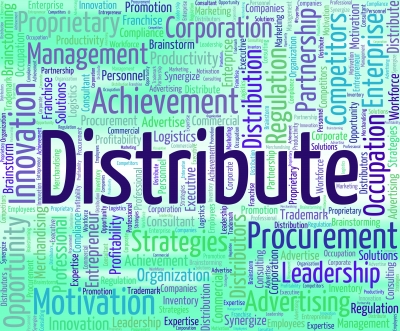NetSuite Supply Chain Solutions for Modern Business
3 Reasons Businesses Turn to NetSuite Supply Chain Solutions If you are running around your warehouse too much to check the status of an order, it...
2 min read
Annette Manias Mar 1, 2022 11:57:46 AM

We know it's a big investment to do something about upgrading your outdated supply chain system. However, have you considered the costs to your business of doing nothing? Here are some points to consider next time you notice you are not getting what you need out of your existing supply chain system.
There's a lot of talk about companies upgrading their outdated systems to a modern digital supply chain solution. The cost of ERP implementation is high but what is the cost of continuing on a system that doesn't help you with a competitive advantage? You may be shocked at the hidden costs and inherent risks your company will face on an outdated supply chain management system, including:
Historically concentrated in the B2B space, Compac Industries traditionally relied on its partnerships with retailers to reach end customers. B2C was less of a focus, driven primarily by call-in customer orders from product catalogs. Yet, as technology advancements drove the growth of the eCommerce sector, both Compac’s consumer and competitive landscapes were revolutionized.
As its business continued to evolve, Compac recognized the limitations of its antiquated ERP system and its manual processes, often done in Excel. To propel
its brand strategy and future growth, Compac needed the right technology to manage the entirety of the business, from customers to inventory and financials. Compac switched from its Sage ERP platform to NetSuite in 2017.
"It’ll even tell you when things are going sideways and show you what to do about that."
After implementing NetSuite for manufacturing, the company’s inventory was fully reported, and work orders were automatically generated for the first time in 20 years. The leadership team values the system’s out-of-the-box dashboards, which allow them to keep tabs on all major departments while empowering the employees to drive maximum value for the business.
With the autonomous supply chain in place, all of the information coming in from suppliers goes right into a centralized, unified platform where all of the numbers are crunched, and recommendations made. It’ll even tell you when things are going sideways and show you what to do about that.
By embracing the cloud as part of their digital supply chain strategies, companies are not only better positioned for today’s fast-paced, highly-competitive environment. Make sure that whatever your company’s current and future strategies are, they can be attained with the processes that you have in place. If not, then it’s time for a change.
It's possible to reduce your operating expenses, improve visibility into inventory and increase customer service by implementing an accounting ERP like NetSuite. Learn more about how wholesale distributors are seeing tremendous results after incorporating the NetSuite ERP solution with the guidance of the experts at Oasis Solutions.

3 Reasons Businesses Turn to NetSuite Supply Chain Solutions If you are running around your warehouse too much to check the status of an order, it...

Be Better Prepared to Be Resilient and Agile for Today's Distribution Environment The need to be resilient and agile in business was confirmed time...

More than half of Distribution organizations with upgrade aspirations struggle with how to plan and execute the transition to automation. As the pace...